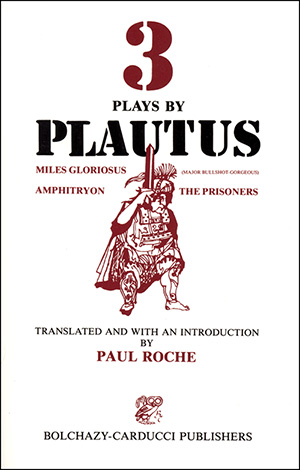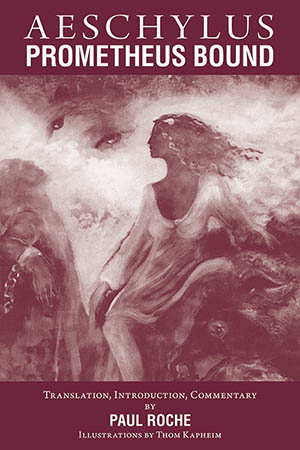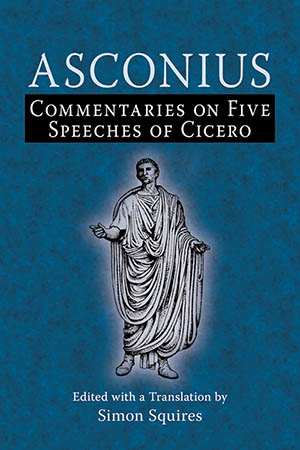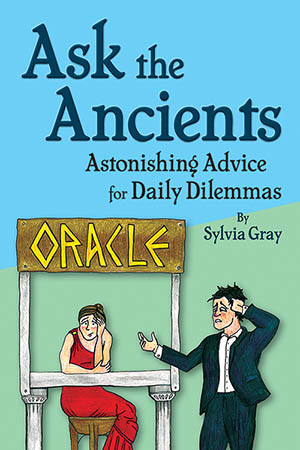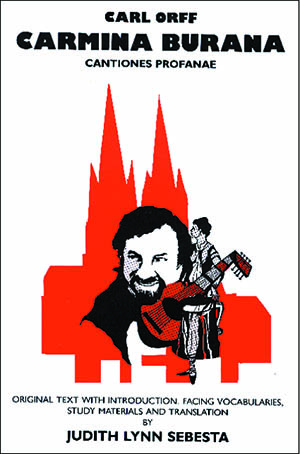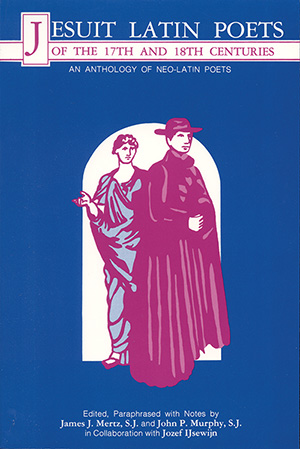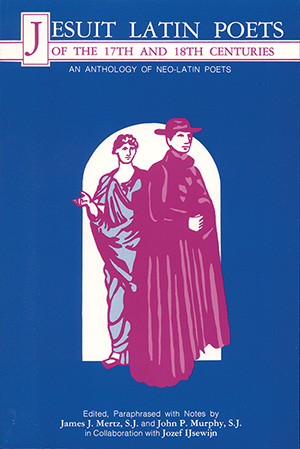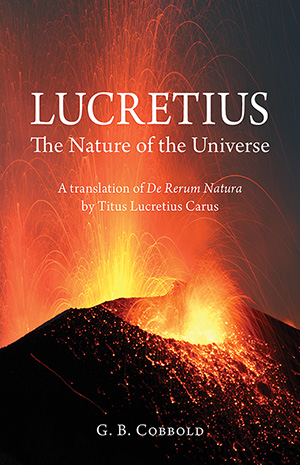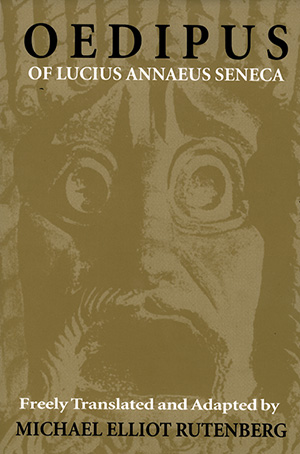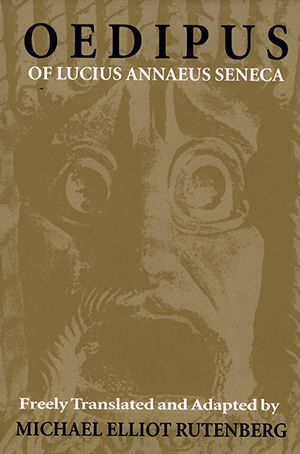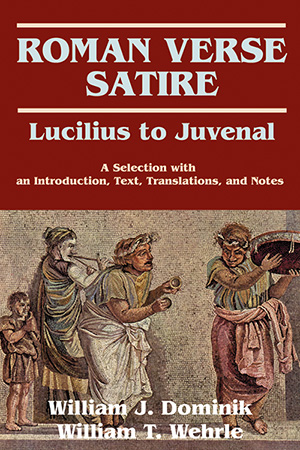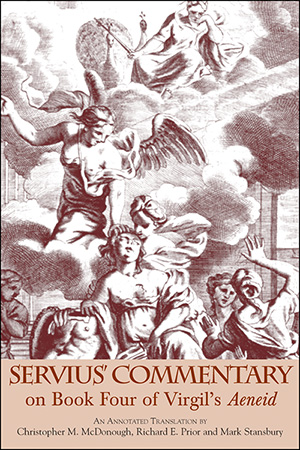3 Plays by Plautus
- Author: Paul Roche
- 035X
- 978-0-86516-035-4
- Paperback
- Bolchazy-Carducci Publishers, Inc.
- 288
Aeschylus Prometheus Bound
- Translator: Paul RocheIllustrator: Thom Kapheim
- 2387
- 978-0-86516-238-9
- Paperback
- Bolchazy-Carducci Publishers, Inc.
- 108
In his Prometheus Bound, the ancient Greek playwright Aeschylus presents the dramatic conflict between the free spirit of human progress and the limitations set by divine law. Prometheus was chained to a mountain, sentenced to endure a hideous and eternal torture for wresting fire from the gods to bring it to earth. His story has become a universal symbol for human strength of character, achievement, and enlightenment. Roche's translation captures the force, the beauty and the nobility of the original play.
Asconius Commentaries on Five Speeches of Cicero
- Author: Simon Squires
- 2204
- 978-0-86516-220-4
- Paperback
- Bolchazy-Carducci Publishers, Inc.
- 176
Students and scholars of Latin, history, and literature will find this to be an outstanding book that offers insights into the lives of Cicero and Asconius, as well as a fascinating look at Rome in the first century BCE. Commentaries by Asconius are included with the text and translation of these speeches by Cicero: In Pisonem, Pro Scauro, Pro Milone, Pro Cornelio, and In Toga Candida.
Ask the Ancients: Astonishing Advice for Daily Dilemmas
- Author: Sylvia GrayIllustrator: Lydia Koller
- 8180
- 978-0-86516-818-3
- Paperback
- Bolchazy-Carducci Publishers, Inc.
- 141
How can I overcome stage fright?
What should I look for in a wife?
Is the world going downhill?
Ancient authorities from the Western classical tradition offer opinions on these and other burning questions. The advice is often astonishing-for its wisdom, its entertainment value, or its complete lack of concern for modern sensibilities. The author, who collected these fascinating tidbits as she worked her way through many of the extant classical sources, can't help but enter the discussion with her own thoughts as well.
Carmina Burana Cantiones Profanae
- Translator: Judith Lynn Sebesta
- 2689
- 978-0-86516-268-6
- Paperback
- 165
Carl Orff's 24 selections from the 200 beloved medieval poems of the Carmina Burana celebrate the universal range of human emotion and experience: passion, longing, exuberance, humor, rebellion, ennui, and resignation. Now tender, now tragic; secular, yet reverent; the poems of the Carmina touch the chords of our purest and darkest spirituality. An excellent resource for the student, the performer, the audience, and the general reader.
Jesuit Latin Poets of the 17th and 18th Centuries: An Anthology of Neo-Latin Poetry
- 214X
- 978-0-86516-214-3
- Hardcover
- Bolchazy-Carducci Publishers, Inc.
- 248
The original text and translations of 62 poems written by 19 authors are included in this book, offering a unique and illuminating look at neo-Latin poetry. Includes notes and vocabulary.
Jesuit Latin Poets of the 17th and 18th Centuries: An Anthology of Neo-Latin Poetry
- 2158
- 978-0-86516-215-0
- Paperback
- Bolchazy-Carducci Publishers, Inc.
- 248
The original text and translations of 62 poems written by 19 authors are included in this book, offering a unique and illuminating look at neo-Latin poetry. Includes notes and vocabulary.
Lucretius Nature of the Universe
- Translated by: G. B. Cobbold
- 8385
- 978-0-86516-838-1
- Bolchazy-Carducci Publishers
We know almost nothing of the Roman author Lucretius, except that he gave to the world a didactic poem that is the oddest of ducks: a passionate, philosophic/scientific treatise that explains Epicurus's theory of atoms and touts reason and exacting knowledge of the way things are as antidotes to uncertainty and the fear of death. In six books that teeter between celebratory creation and total annihilation, its narrative is driven by pounding logic and determined pedagogical prodding. Studded as it is with vivid stories and meticulous observations of natural phenomena, The Nature of the Universe is an ancient work still able to grab hold of modern readers and not let go. As timely today as it was 2,000 years ago, it proves that the humanities and sciences can inspire and complete one another.
Oedipus of Lucius Annaeus Seneca
- Author: Michael Elliot Rutenberg
- 4592
- 978-0-86516-459-8
- Paperback
- 112
Rutenberg's adaptation of Seneca's Oedipus is the first translation of this Roman tragedy to interpolate excerpts from Seneca's moral philosophies into the text. This juxtaposition of Seneca's calm, rational thought with the passionate, highly theatrical language of his play creates an exciting synergy of powerful emotional and intellectual appeal. Seneca believes that human beings live at the whim of blind chance or divine will. He is interested in how we face a tragedy not of our own making, how we respond to something beyond our control. His central tenet is that we must try to accept suffering with dignity, grace, and mercy. This philosophy is as relevant today, in a world filled with repeated horrors against innocents, as it was in ancient times.
Oedipus of Lucius Annaeus Seneca
- Author: Michael Elliot Rutenberg
- 4630
- 978-0-86516-463-5
- 112
Rutenberg's adaptation of Seneca's Oedipus is the first translation of this Roman tragedy to interpolate excerpts from Seneca's moral philosophies into the text. This juxtaposition of Seneca's calm, rational thought with the passionate, highly theatrical language of his play creates an exciting synergy of powerful emotional and intellectual appeal. Seneca believes that human beings live at the whim of blind chance or divine will. He is interested in how we face a tragedy not of our own making, how we respond to something beyond our control. His central tenet is that we must try to accept suffering with dignity, grace, and mercy. This philosophy is as relevant today, in a world filled with repeated horrors against innocents, as it was in ancient times.
Roman Verse Satire: Lucilius to Juvenal: A Selection with an Introduction, Text, Translations, and Notes
- Author: William J. DominikEditor: William T. Wehrle
- 4428
- 978-0-86516-442-0
- Paperback
- 236
Satura quidem tota nostra est Satire is altogether ours was the claim of the Roman Quintilian, the first century C.E. commentator on rhetorical and literary matters, for the literary world had not previously seen the likes of satire. Not for the faint of heart, satire is characterized by its wide-ranging themes, its tone that is sometimes humorous and distinctively biting, and its undeniable perspicacity. As an antidote to life's frustrations and human foibles, satire is the undisputed queen of genres.
Servius' Commentary on Book Four of Vergil's Aeneid: An Annotated Translation
- 5149
- 978-0-86516-514-4
- Bolchazy-Carducci Publishers, Inc.
- 156
Servius' Commentary is important not only as a rich source of information on Virgil's masterpiece but also for its countless gems about Roman life and literature. Its value has remained unquestioned.

